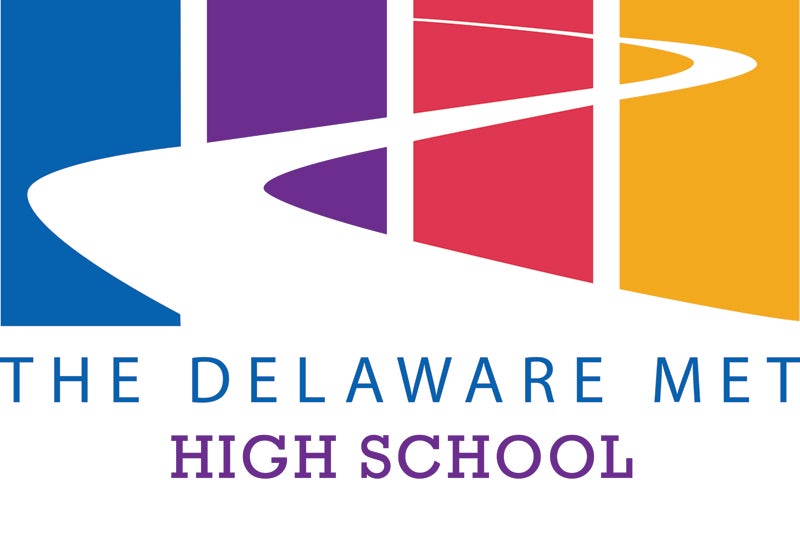Delaware closing charter school one semester after opening

In an unprecedented move, Delaware has decided to close one of its charter schools just months after the school opened.
Delaware Met, a charter high school in Wilmington, becomes Delaware’s first school to have its charter revoked in the first semester of operation. State officials said fiscal woes, legal noncompliance, and serious school safety concerns made Delaware Met unfit to educate.
Barring a legal challenge, the school will close on Jan. 22. Its 206 students will be forced to finish the school year elsewhere.
“It’s an extraordinary decision in extraordinary circumstances,” said Jennifer Nagourney, head of the state’s charter school office. “Delaware has never seen a charter school at this early stage in its existence have so many complicated problems that so directly affect the education of its students.”
From almost the moment it launched in August, Delaware Met floundered. Staff turnover, building malfunctions, and serious school climate issues beset it. Police say they visited the school 24 times between late August and late November. They reported threats toward staff, student possession of weapons, and one incident where a bullet was found on a classroom floor.
An investigation by the Delaware Department of Education found the school was using curricula intended for middle-schoolers and shifting money earmarked for special education services to cover other expenses. A report issued by the department’s Charter School Accountability Committee said Delaware Met wasn’t providing legally required services for any of its 59 special-education students. Through the struggles, school enrollment dipped — from 261 students to 206.
The state board voted 4-1 to revoke the school’s charter after the first semester ends in January.
Legal challenge possible
Representatives of the school say the move was premature. They argue that the school faced extraordinary, unforeseen challenges and that Delaware Met was trending up due to recent changes. The school’s original leader took maternity leave at the beginning of the year and was eventually replaced just last week, according to board members.
“If you go to the school now, you’ll see a completely different school,” said board member Jillian Wattley.
“They feel let down,” she said of the students. “You have children who are talking about going back to the block. This is the first school where they felt like they belonged.”
Asked whether the school might mount some sort of legal challenge, another board member, Adrian Anderson-Strange, replied, “Absolutely.”
Anderson-Strange would not comment further on the nature of the litigation.
In the past year, two charter schools have sued Delaware after the state said it would shutter them. In both cases, judges ultimately sided with the state and the schools closed.
Anderson-Strange and Wattley also blamed the school’s charter management organization, Innovative Schools, for failing to provide needed support. Matt Swanson, executive chairman of Innovative Schools, disputed those claims. He agreed, however, that the state’s decision to revoke Delaware Met’s charter was misguided and would further hurt the school’s students.
“There are parents and students who have gone on record saying they would rather drop out before going back to their old schools,” said Swanson.
Delaware Met’s students can return to their feeder pattern schools or choice into a school that is willing to accept them midyear. Some amount of pro-rated funds will follow the students to their new schools, although state officials did not say exactly how much.
State board members wrestled with the decision to close Delaware Met in a tense and emotional debate.
‘No good solution’ for the kids
Gregory Coverdale, the only board member to vote against revoking Delaware Met’s charter, said the school hadn’t been given enough time to correct its course.
“I know in the past there have been opportunities extended to other schools to get things in order,” Coverdale said.
He argued the students would be no better off in their feeder schools, in many cases the same schools they’d left to attend Delaware Met. He also noted that Delaware Met’s students — most African-American and low income — are the same ones who keep getting “shuffled around” when the state closes charter schools.
Two recently closed charter schools, the Maurice J. Moyer Academic Institute and Reach Academy, were also majority black and located in New Castle County. On Wednesday, the Red Clay School District elected to close a predominantly black charter elementary school in Wilmington.
Other board members, however, referenced the seeming chaos at Delaware Met and said they couldn’t in good conscience allow the school to stay open. Board member Patrick Heffernan said the school’s founders were “in way over their head” and mentioned that Delaware Met had two full years to prepare for opening day — the maximum amount allowable.
He added later in a moment of visible emotion, “It’s just so sad that there’s no good solution for those students.”
WHYY is your source for fact-based, in-depth journalism and information. As a nonprofit organization, we rely on financial support from readers like you. Please give today.





